The sky is on the riverbed
Every day, along the Maspero River in Soc Trang Ward (Can Tho City), it is not difficult to encounter people quietly carrying old net rackets, playing with plastic poles across the hips and diving in the turbid water. These are freelance workers who are attached to the job of collecting vermicompost and flood, but have become the main source of livelihood for many families.
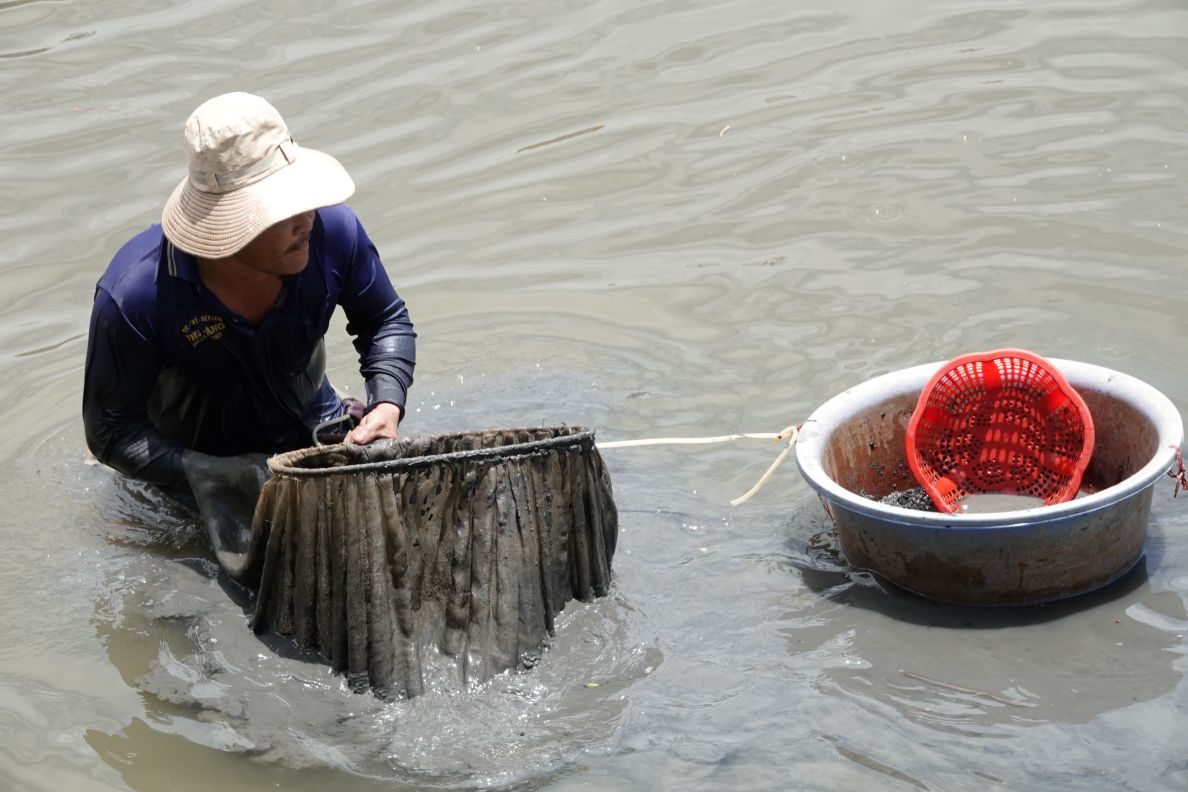
Mr. Thach Hanh (48 years old) in Soc Trang ward said that almost every day he goes into the river early in the morning or when the water is clear. "Every day I earn a few hundred thousand, enough to worry about rice. But it is very difficult, you have to dig deep, digging into every piece of mud to get the worms," he shared.
According to Mr. Hanh, earthworms often only live in the black mud, the more the water is cloudy, the more polluted they are. When determined to point, the workers placed the net, swung deep into the net, and dived the mud back into the net with both hands. Pull them up and shake them hard to let the mud float, leaving only the red and pink layers and a little black mud.
Mr. Thach Hoang (65 years old) in Soc Trang ward said that every day he collects 2 - 3kg of sugarcane, selling about 140,000 VND/kg. One lucky day he also earned about 500,000 VND, a few hundred or so. According to Mr. Hoang, the vermicompost picking profession only began to take shape when the movement of raising ornamental fish and fish relatives developed, the demand for vermicompost for food increased, so traders always came to buy regularly.
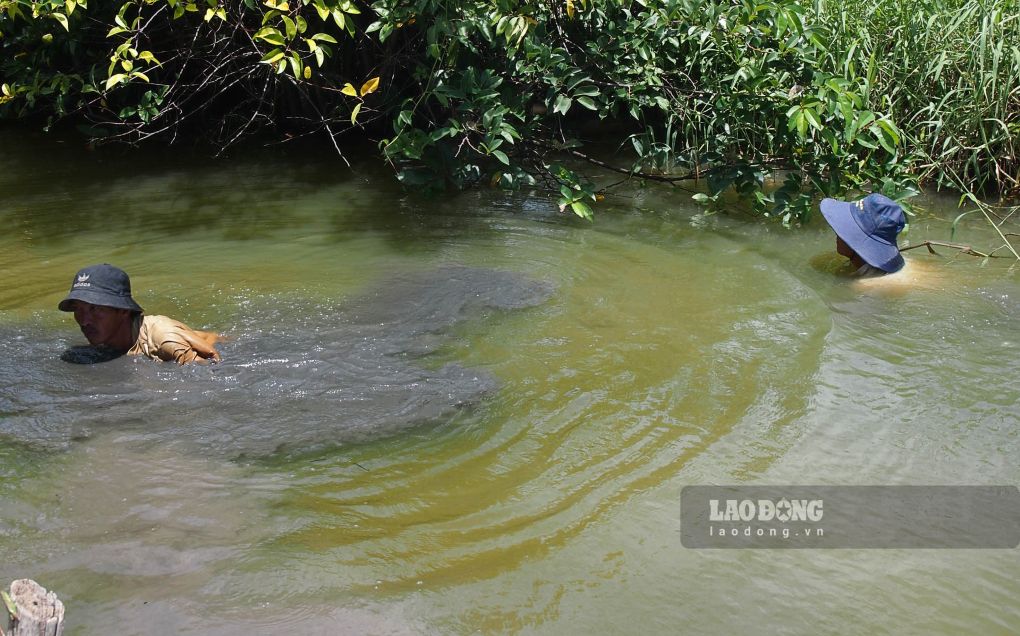
Not only short-term, many rural workers in Gia Hoa and Vinh Chau communes (Can Tho city) also have a steady income from nail snail scraping. Along the canals, ditches or vacant shrimp squares, groups of 2 - 4 people soaked from 3am to late afternoon to scrap snails.
Mr. Nguyen Chi Thanh (Gia Hoa commune, Can Tho city) has been in this profession for more than 2 years and said: "Scaffolding is like picking up a lucky grape, with many meals and few meals, on average each day it takes 130 - 200kg. After deducting expenses, the income is about 300,000 VND".
Mr. Thanh said that the nail snails are small in size, only 1 - 2cm, living in saltwater, brackish water, and thrive in the rainy season. They are an ideal food source for crab farming, so they are regularly purchased by traders. Prices range from 1,800 - 3,600 VND/kg, each scraping group can harvest several hundred kg, even a ton of snails in a day.
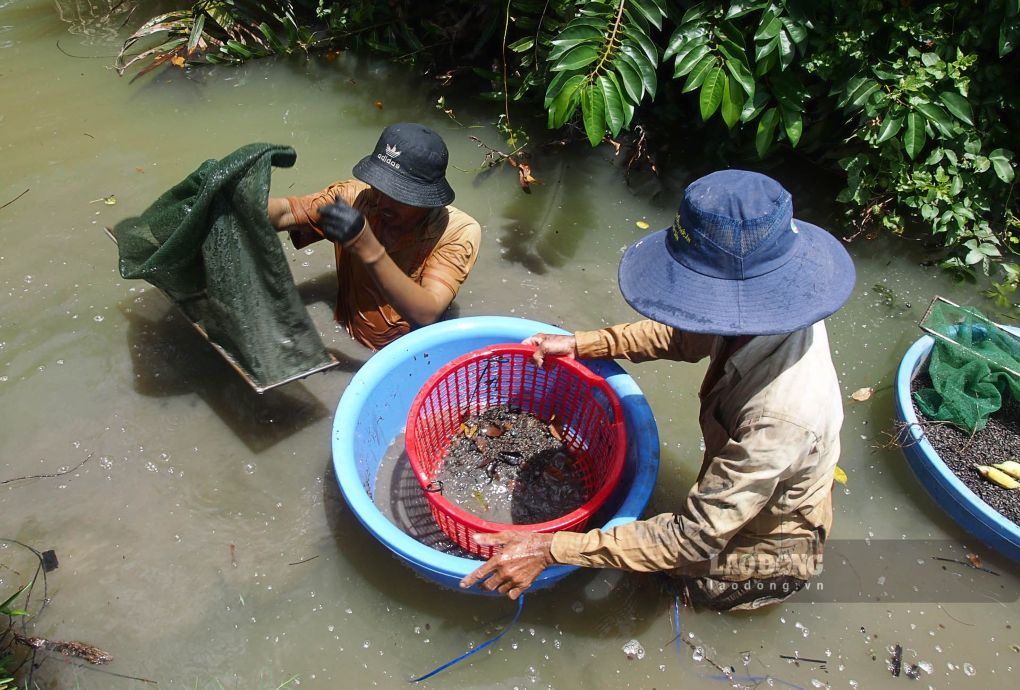
The very rudimentary scraping tools include homemade scrapers made of steel, baskets, buckets and packaging. The diver was stunned, using his strength to pull the rectangular mouth net deep into the bottom, scooping each piece of snail. Each racket is filled with 2 - 3kg of snails, so clean the mud and garbage and put them in a 50 - 70kg bag.
Currently, along route 940 connecting Nam Song Hau sidewalk to National Highway 1A through Can Tho city, there are about 10 hectares of land purchased, creating livelihoods for hundreds of freelance workers.
An endangered danger
According to the profession, behind the income of a few hundred thousand dong a day are existing dangers. Working frequently in a water environment can easily lead to skin diseases, allergies, and infections. The mud was mixed with scraps of bottle, sharp stones, and scrap iron underneath, just a mistake to bleed.
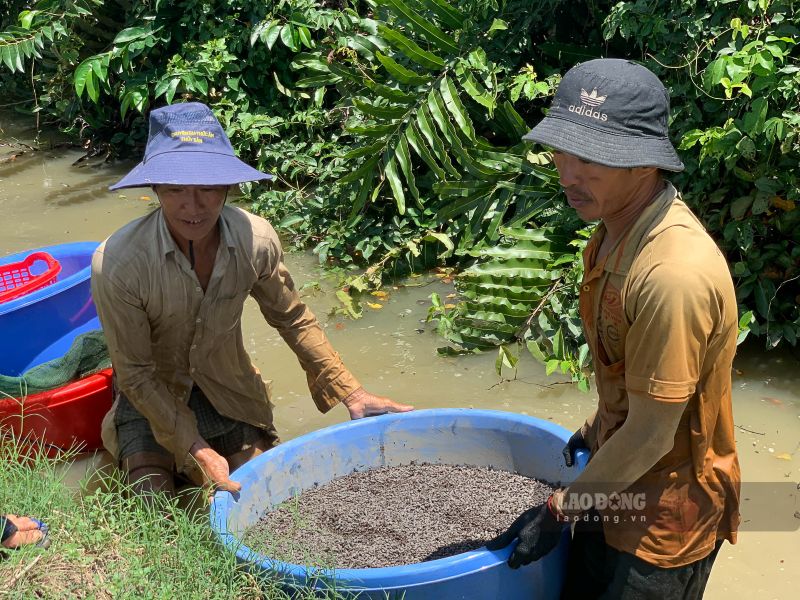
Mr. Thach Hoang, a vermicelli collector in Soc Trang ward (Can Tho city), confided: "There are days when the river is polluted, the water is black, the smell is unpleasant, soaking in for a long time can easily cause itching. But for the benefit of the rice and shirt, we have to accept it."
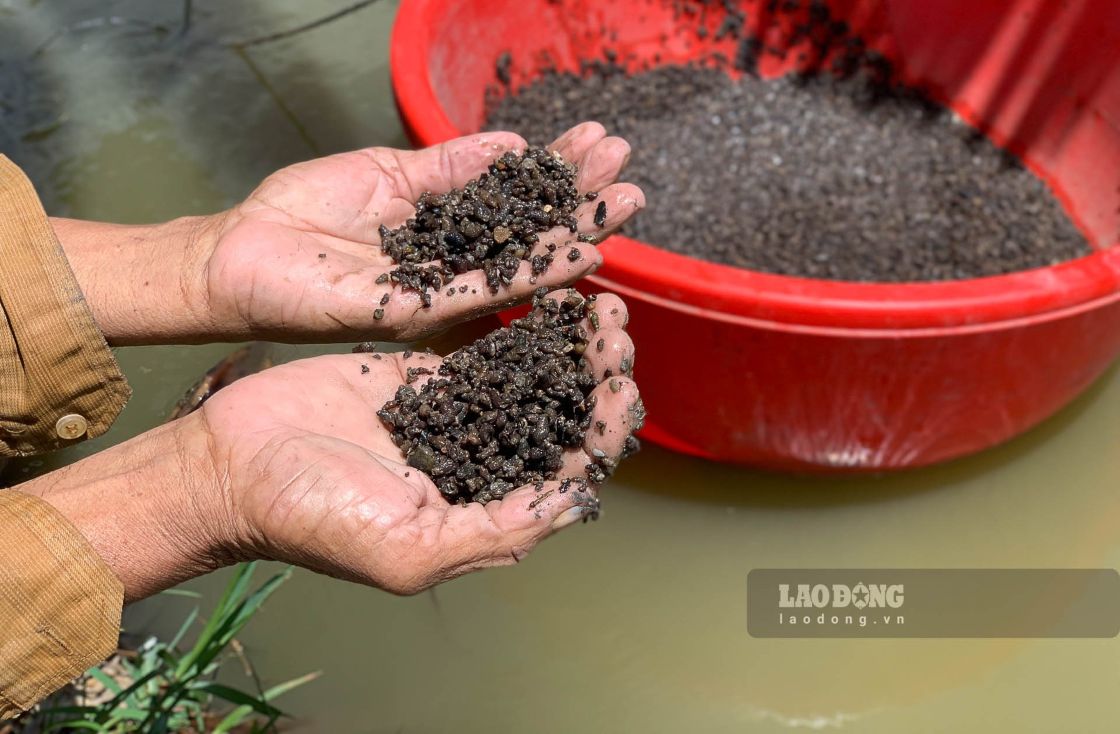
Mr. Nguyen Van Ut, a nail scraper, said that constantly soaking in cold water and moving between canals also poses risks. Many people have had their limbs severed. There were days when I went whole day without getting much, so I had to return empty-handed.









